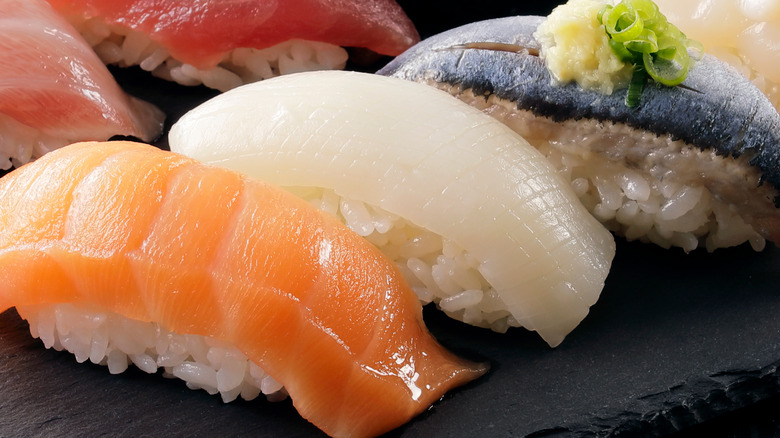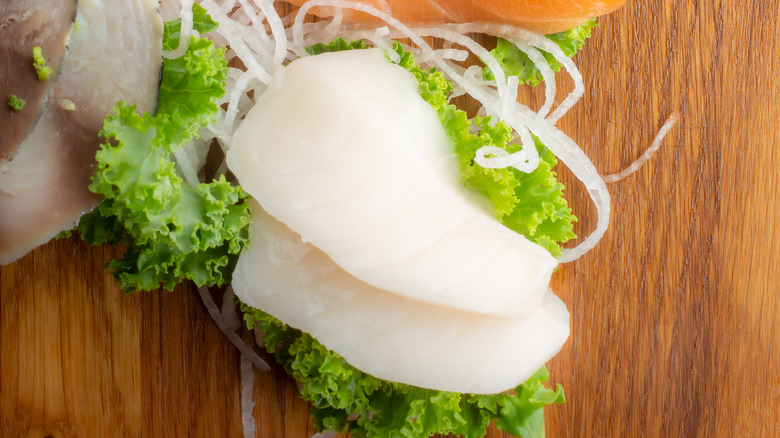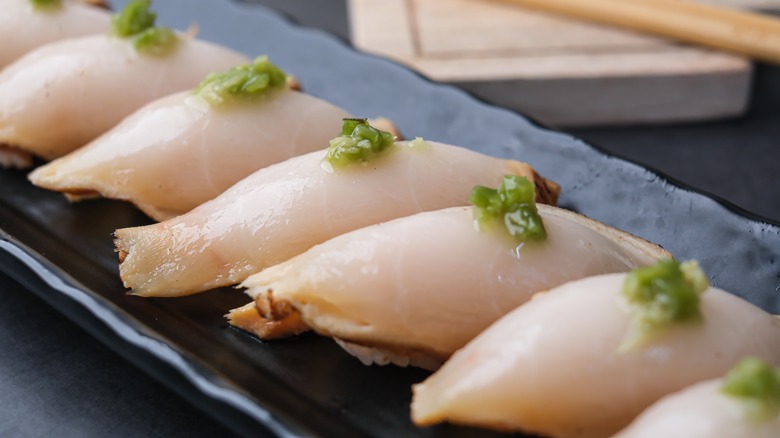What Is White Tuna And Is It Safe To Eat?
When you dine at a sushi restaurant, it's reasonable to assume that the establishment is honest about the type of fish you're eating. However, that's not always the case. In fact, a 2017 UCLA study found that 47% of all fish served in select sushi restaurants in the Los Angeles area between the years 2012 and 2015 was mislabeled. This issue is not unique to America, either; various studies have shown that mislabeling has occurred in at least 30 countries.
Not only is it sort of lousy to serve a different — often inferior — fish to a customer who has ordered and paid for a superior product, but mislabeled fish can also have negative health consequences. Consider the fish often labeled "white tuna." This name actually applies to two types of fish. One is albacore, a popular type of tuna used for sushi and the same type of fish you can find canned in your local supermarket. The other is a fish called escolar, which is not tuna at all. It's actually a snake mackerel. The issue with escolar is that, although it is delicious and has an oily taste, its flesh contains a waxy substance that can cause gastrointestinal distress for some people, according to the NSW Food Authority.
The problem with escolar
Often marketed as "white tuna" or "super white tuna," escolar is actually the common name for two species of fish: "Ruvettus pretiosus" and "Lepidocybium flavobrunneum." Though it's often caught as a byproduct of tuna fishing, escolar has become a commercial species in its own right, largely due to its fatty texture and mild taste, which has made it popular as a budget-friendly sushi-grade fish.
Unfortunately, it's this fatty mouthfeel of the so-called "white tuna" that can cause gastrointestinal issues for some people after consuming too much of the fish. Escolar contains a waxy ester called gempylotoxin which makes up to 90% of the fish's total fat content and gives it its characteristic texture. Despite its name, gempylotoxin is not poisonous. However, humans can't digest this waxy substance, and consuming it can lead to stomach cramps, intestinal discomfort, and an unfortunate encounter with the toilet for some individuals.
Should you avoid escolar?
To avoid any potential negative side effects, it's recommended that people limit their intake of escolar to under six ounces. Because the fish is technically not poisonous, it continues to be sold in many parts of the world. Restaurants and chefs often use it to cut costs or boost profits. However, it's worth noting that Japan and Italy, two nations renowned for their love of seafood, have banned the sale of the fish.
For those wary of escolar's side effects, or who simply wish to enjoy genuine white tuna, there is one important visual difference between genuine white albacore tuna and its imposter. Genuine white albacore tuna is often actually pale pink in color, while escolar is opaque white with absolutely no pinkness in its flesh. You can also ask the server to inquire with the chef about whether the white tuna on the menu is albacore or escolar. Otherwise, if you have a sensitive digestive system, it might be a good idea to avoid "white tuna" altogether.



